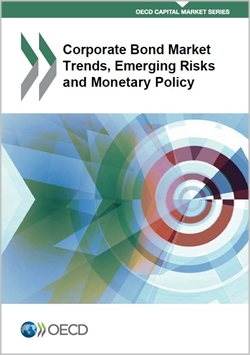Corporate governance
Corporate Bond Market Trends, Emerging Risks and Monetary Policy
|
Date of publication
This report is a contribution to the OECD Capital Market Series. |
18/02/2020 - After a return to more expansionary monetary policies in early 2019, the world’s non-financial corporations borrowed an additional USD 2.1 trillion in the form of corporate bonds. In real terms, this is equivalent to the amount borrowed in the previous record year 2016 and represents a clear reversal of the decrease in corporate bond issuance during 2018. Adding the record borrowing during 2019 to the unprecedented build-up of corporate bond debt since 2008 means that the global outstanding stock of non-financial corporate bonds at the end of 2019 reached an all-time high of USD 13.5 trillion.
The new data in this OECD report, Corporate Bond Market Trends, Emerging Risks and Monetary Policy, shows that, in addition to its growing size, the quality and dynamics of the outstanding stock of corporate bonds have also changed. Compared with previous credit cycles, today’s stock of outstanding corporate bonds has lower overall credit quality, higher payback requirements, longer maturities and inferior covenant protection. These are features that may amplify the negative effects that an economic downturn would have on the non-financial corporate sector and the overall economy.
News release - Corporate bond debt continues to pile up | version française
|
Related Documents

